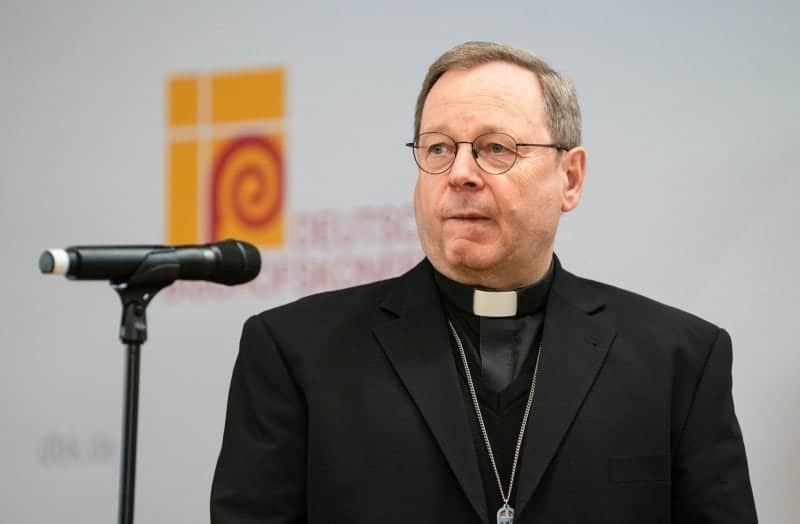DPA

The leaders of Germany’s Catholic Church are gathering on Monday, with two topics set to dominate their spring meeting: reform efforts in the wake of multiple sexual abuse scandals and the war in Ukraine.
The opening service of the four-day plenary session in the Basilica of the Fourteen Holy Helpers in the Bavarian town of Bad Staffelstein will be dedicated to prayer for peace in Ukraine and throughout Europe, organizers said.
The president of the German Bishops’ Conference (DBK), Bishop Georg Bätzing, will lead the prayers.
Experts have been invited to discuss the situation in Ukraine, a DBK spokesperson said. These include Andrij Waskowycz, who was president of Caritas Ukraine for 20 years until 2021.
Another focus is the reform debate in the Church, which has regained momentum with the publication of a report into sexual abuse in the Munich archdiocese earlier this year.
The report alleged that dozens of reports of sexual abuse were not handled properly by the archdiocese.
Among many others, the report also pointed the finger at a former pope, now Pope Emeritus Benedict XVI. He was accused of misconduct and changed one of the statements he had made to the investigators. He insists however he was not part of any cover-up to hide sexual abuse.
The return of Cardinal Rainer Maria Woelki to his post in Cologne last week has also caused ructions in the Church.
Woelki had been heavily criticized – and took a five-month leave of absence – for not publicly releasing a report on child sexual abuse and alleged cover-ups in his archdiocese.
A separate body of the Church, called the Synodal Path, recently adopted some reform proposals with a large majority – among other things, the faithful are to have more say in the appointment of bishops.
“Wir sind Kirche” (We are Church), a reform movement within the German Catholic Church, has called for the measures proposed by the Synodal Path to be formally adopted at the meeting starting today. Church leaders should now “nail their colours to the mast,” it said.
There was clear majority at the synodal assembly for a text that recognized homosexuality as a sexual identity of equal value to heterosexuality, and which argued that nobody should be denied ecclesiastical office or ordination to the priesthood on the grounds of their sexual preference.
The assembly also came out in favour of the blessing of homosexual partnerships, the admission of married priests and the appointment of female deacons.



